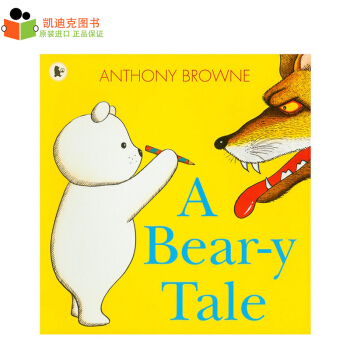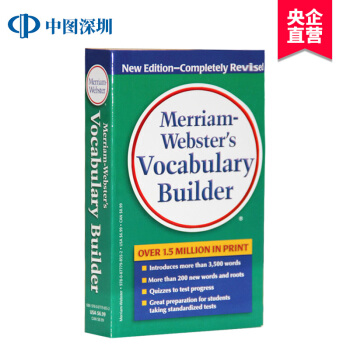![The Woman in White 白衣女人 英文原版 [平装] [NA--NA]](https://pic.tinynews.org/19017063/rBEQWFF00AwIAAAAAAU1NuIauIQAAEqhQPWNjoABTVO752.jpg)

具体描述
内容简介
"There, in the middle of the broad, bright high-road—there, as if it had that moment sprung out of the earth or dropped from the heaven—stood the figure of a solitary Woman, dressed from head to foot in white garments."Thus young Walter Hartright first meets the mysterious woman in white in what soon became one of the most popular novels of the nineteenth century. Secrets, mistaken identities, surprise revelations, amnesia, locked rooms and locked asylums, and an unorthodox villain made this mystery thriller an instant success when it first appeared in 1860, and it has continued to enthrall readers ever since. From the hero's foreboding before his arrival at Limmeridge House to the nefarious plot concerning the beautiful Laura, the breathtaking tension of Collins's narrative created a new literary genre of suspense fiction, which profoundly shaped the course of English popular writing.
Collins's other great mystery, The Moonstone, has been called the finest detective story ever written, but it was this work that so gripped the imagination of the world that Wilkie Collins had his own tombstone inscribed: "Author of The Woman in White."
作者简介
William Wilkie Collins was born in London in 1824, the eldest son of a successful painter, William Collins. He studied law and was admitted to the bar but never practiced his nominal profession, devoting his time to writing instead. His first published book was a biography of his father, his second a florid historical romance. The first hint of his later talents came with Basil (1852), a vivid tale of seduction, treachery, and revenge.In 1851 Collins had met Charles Dickens, who would become his close friend and mentor. Collins was soon writing unsigned articles and stories for Dickens's magazine, Household Words, and his novels were serialized in its pages. Collins brought out the boyish, adventurous side of Dickens's character; the two novelists traveled to Italy, Switzerland, and France together, and their travels produced such lighthearted collaborations as "The Lazy Tour of Two Idle Apprentices." They also shared a passion for the theater, and Collins's melodramas, notably "The Frozen Deep," were presented by Dickens's private company, with Dickens and Collins in leading roles.
Collins's first mystery novel was Hide and Seek (1853). His first popular success was The Woman in White (1860), followed by No Name (1862), Armadale (1866), and The Moonstone (1868), whose Sergeant Cuff became a prototype of the detective hero in English fiction. Collins's concentration on the seamier side of life did not endear him to the critics of his day, but he was among the most popular of Victorian novelists. His meticulously plotted, often violent novels are now recognized as the direct ancestors of the modern mystery novel and thriller.
Collins's private life was an open secret among his friends. He had two mistresses, one of whom bore him three children. His later years were marred by a long and painful eye disease. His novels, increasingly didactic, declined greatly in quality, but he continued to write by dictating to a secretary until 1886. He died in 1889.
精彩书摘
Chapter OneThe Narrative of Walter Hartright, of Clemant's Inn, London
IT WAS the last day of July. The long hot summer was drawing to a close; and we, the weary pilgrims of the London pavement, were beginning to think of the cloud-shadows on the corn-fields, and the autumn breezes on the sea-shore.
For my own poor part, the fading summer left me out of health, out of spirits, and, if the truth must be told, out of money as well. During the past year, I had not managed my professional resources as carefully as usual; and my extravagance now limited me to the prospect of spending the autumn economically between my mother's cottage at Hampstead, and my own chambers in town.
The evening, I remember, was still and cloudy; the London air was at its heaviest; the distant hum of the street-traffic was at its faintest; the small pulse of the life within me and the great heart of the city around me seemed to be sinking in unison, languidly and more languidly, with the sinking sun. I roused myself from the book which I was dreaming over rather than reading, and left my chambers to meet the cool night air in the suburbs. It was one of the two evenings in every week which I was accustomed to spend with my mother and my sister. So I turned my steps northward, in the direction of Hampstead.
Events which I have yet to relate, make it necessary to mention in this place that my father had been dead some years at the period of which I am now writing; and that my sister Sarah, and I, were the sole survivors of a family of five children. My father was a drawing-master before me. His exertions had made him highly successful in his profession; and his affectionate anxiety to provide for the future of those who were dependent on his labours, had impelled him, from the time of his marriage, to devote to the insuring of his life a much larger portion of his income than most men consider it necessary to set aside for that purpose. Thanks to his admirable prudence and self-denial, my mother and sister were left, after his death, as independent of the world as they had been during his lifetime. I succeeded to his connexion, and had every reason to feel grateful for the prospect that awaited me at my starting in life.
The quiet twilight was still trembling on the topmost ridges of the heath; and the view of London below me had sunk into a black gulf in the shadow of the cloudy night, when I stood before the gate of my mother's cottage. I had hardly rung the bell, before the house-door was opened violently; my worthy Italian friend, Professor Pesca, appeared in the servant's place; and darted out joyously to receive me, with a shrill foreign parody on an English cheer.
On his own account, and, I must be allowed to add, on mine also, the Professor merits the honour of a formal introduction. Accident has made him the starting-point of the strange family story which it is the purpose of these pages to unfold.
I had first become acquainted with my Italian friend by meeting him at certain great houses, where he taught his own language and I taught drawing. All I then knew of the history of his life was, that he had once held a situation in the University of Padua; that he had left Italy for political reasons (the nature of which he uniformly declined to mention to anyone); and that he had been for many years respectably established in London as a teacher of languages.
Without being actually a dwarf-for he was perfectly well-proportioned from head to foot-Pesca was, I think, the smallest human being I ever saw, out of a show-room. Remarkable anywhere, by his personal appearance, he was still further distinguished among the rank and file of mankind, by the harmless eccentricity of his character. The ruling idea of his life appeared to be, that he was bound to show his gratitude to the country which had afforded him an asylum and a means of subsistence, by doing his utmost to turn himself into an Englishman. Not content with paying the nation in general the compliment of invariably carrying an umbrella, and invariably wearing gaiters and a white hat, the Professor further aspired to become an Englishman in his habits and amusements, as well as in his personal appearance. Finding us distinguished, as a nation, by our love of athletic exercises, the little man, in the innocence of his heart, devoted himself impromptu to all our English sports and pastimes, whenever he had the opportunity of joining them; firmly persuaded that he could adopt our national amusements of the field, by an effort of will, precisely as he had adopted our national gaiters and our national white hat.
I had seen him risk his limbs at a fox-hunt and in a cricket-field; and, soon afterwards, I saw him risk his life, just as blindly, in the sea at Brighton. We had met there accidentally, and were bathing together. If we had been engaged in any exercise peculiar to my own nation, I should, of course, have looked after Pesca carefully; but, as foreigners are generally quite as well able to take care of themselves in the water as Englishmen, it never occurred to me that the art of swimming might merely add one more to the list of manly exercises which the Professor believed that he could learn impromptu. Soon after we had both struck out from shore, I stopped, finding my friend did not gain on me, and turned round to look for him. To my horror and amazement, I saw nothing between me and the beach but two little white arms, which struggled for an instant above the surface of the water, and then disappeared from view. When I dived for him, the poor little man was lying quietly coiled up at the bottom, in a hollow of shingle, looking by many degrees smaller than I had ever seen him look before. During the few minutes that elapsed while I was taking him in, the air revived him, and he ascended the steps of the machine with my assistance. With the partial recovery of his animation came the return of his wonderful delusion on the subject of swimming. As soon as his chattering teeth would let him speak, he smiled vacantly, and said he thought it must have been the Cramp.
When he had thoroughly recovered himself and had joined me on the beach, his warm Southern nature broke through all artificial English restraints, in a moment. He overwhelmed me with the wildest expressions of affection-exclaimed passionately, in his exaggerated Italian way, that he would hold his life, henceforth, at my disposal-and declared that he should never be happy again, until he had found an opportunity of proving his gratitude by rendering me some service which I might remember, on my side, to the end of my days. I did my best to stop the torrent of his tears and protestations, by persisting in treating the whole adventure as a good subject for a joke; and succeeded at last, as I imagined, in lessening Pesca's overwhelming sense of obligation to me. Little did I think then-little did I think afterwards when our pleasant Brighton holiday had drawn to an end-that the opportunity of serving me for which my grateful companion so ardently longed, was soon to come; that he was eagerly to seize it on the instant; and that, by so doing, he was to turn the whole current of my existence into a new channel, and to alter me to myself almost past recognition.
Yet, so it was. If I had not dived for Professor Pesca, when he lay under water on his shingle bed, I should, in all human probability, never have been connected with the story which these pages will relate-I should never, perhaps, have heard even the name of the woman, who has lived in all my thoughts, who has possessed herself of all my energies, who has become the one guiding influence that now directs the purpose of my life.
用户评价
说实话,一开始我以为这会是一本读起来比较枯燥的旧书,但事实证明我完全错了!《白衣女人》的节奏把握得非常好,虽然有些地方细节描写得非常详尽,但整体推进的悬念感却从未减弱。柯林斯非常善于利用环境描写来烘托气氛,阴森的庄园、昏暗的街道,这些场景都为故事增添了一抹诡异的色彩。每当我觉得自己已经猜到了一些真相时,作者总能抛出新的线索,让我措手不及,只能继续往下读,渴望知道结局。这种“猜不到但又合情合理”的写作手法,真是让人佩服得五体投地。
评分《白衣女人》不仅仅是一部悬疑小说,更是一部关于成长和救赎的动人故事。看着沃尔特如何从一个涉世未深的年轻人,一步步成长为能够承担起重任的男人,我的内心也充满了力量。书中描写的各种险境和挑战,让他不得不直面人性的黑暗面,但也因此让他更加坚定了内心的信念。而且,书中对女性的刻画也十分立体,她们不再是单纯的受害者,而是拥有智慧和勇气,能够为自己的命运抗争。这部作品传递出的积极向上的精神,让我读完后久久不能平静,觉得受益匪浅。
评分我特别欣赏《白衣女人》在情节设计上的精妙之处。它就像一张层层叠叠的网,把所有的人物和事件都巧妙地联系在一起。书中埋藏了许多伏笔,需要读者仔细留意才能发现,而这些伏笔往往会在后续的章节中发挥至关重要的作用。这种“抽丝剥茧”的阅读体验,让我感觉自己也像是在参与一场破案的过程。而且,作者在处理一些关键情节时,总是能出人意料,既不会显得突兀,又能让故事更加引人入胜。读完之后,我脑海里还会不断回味那些巧妙的转折,不得不惊叹作者的构思之巧妙。
评分这本《白衣女人》真是让人欲罢不能!从拿到这本书开始,我就被它那股浓厚的维多利亚时代神秘气息深深吸引。威尔基·柯林斯真是个讲故事的大师,他巧妙地编织了一个复杂而扣人心弦的故事,让我完全沉浸其中。书中的人物塑造更是让我赞叹不已,每一个角色都栩栩如生,仿佛就活在我的眼前。尤其是那个神秘的“白衣女人”,她的出现给整个故事增添了一层迷雾,让我迫不及待地想知道她的真实身份和目的。而男主角沃尔特·哈特赖特,一个正直善良的年轻人,他的视角带领我们一步步揭开层层谜团,他的勇敢和坚持也让我深受感动。
评分我之前很少接触过古典推理小说,但《白衣女人》彻底改变了我对这个类型的看法。它不仅仅是一个简单的“谁是凶手”的故事,更是一次对人性复杂性的深刻探讨。作者通过多角度的叙事,将不同人物的内心世界展现得淋漓尽致。我们看到了贪婪、嫉妒、欺骗,但也看到了忠诚、爱情和牺牲。这种丰富的人物情感和心理刻画,让这部作品充满了艺术价值。我尤其喜欢书中对社会阶层、婚姻制度以及女性地位的描写,这些都深刻地反映了那个时代的社会现实,读起来非常有代入感。
评分好
评分环保纸张,比较轻薄。活动满减,价格还行。希望商品包装能够改进,有几本书的封面都被折了。
评分就是喜欢里边的插画哈哈。语言简单,大人看起来也还是挺有意思的。一个半天就看完了一本。比书店便宜好多啊9本书一共买了,平均20一本。真不贵。就是woman in white 看着好像盗版啊。。gone girl 不错。 发货速度慢一些。不过反正也不着急呵呵
评分很好的书,半价买的,超划算
评分好
评分希望你能越做越好,成长有你有我大家一起来,很好的宝贝。
评分质的要求,对教育规律的把握,对教学艺术的领悟,对教学特色的追求。
评分题质疑、成果展示、心得交流、小组讨论、合作学习、疑难解析、观点验证、问题综述。
评分6.18买了蛮多的,都挺好的,囤着慢慢看
相关图书
本站所有内容均为互联网搜索引擎提供的公开搜索信息,本站不存储任何数据与内容,任何内容与数据均与本站无关,如有需要请联系相关搜索引擎包括但不限于百度,google,bing,sogou 等
© 2026 book.idnshop.cc All Rights Reserved. 静思书屋 版权所有

![The Rainbow 彩虹 英文原版 [平装] pdf epub mobi 电子书 下载](https://pic.tinynews.org/19045955/rBEhV1KYRvEIAAAAAAz4BJ4DQMUAAGO6wIBtaEADPgc664.jpg)
![A Baby Sister for Frances (I Can Read Book 2) 弗朗西斯的小妹妹 英文原版 [平装] [4岁及以上] pdf epub mobi 电子书 下载](https://pic.tinynews.org/19046868/550beae5N0a5cb4b6.jpg)
![My Hands (Let's-Read-and-Find-Out Science)[我的双手] 英文原版 [平装] [4岁及以上] pdf epub mobi 电子书 下载](https://pic.tinynews.org/19095720/550bf645N4e1e9621.jpg)
![Dog Wash Day [平装] [3岁及以上] pdf epub mobi 电子书 下载](https://pic.tinynews.org/19138315/rBEhV1MW66sIAAAAAAJkwcLksOcAAJnswF44bkAAmTZ177.jpg)
![National Geographic Little Kids Look and Learn: Patterns! [Board book] [平装] [2-5岁] pdf epub mobi 电子书 下载](https://pic.tinynews.org/19379440/rBEhU1JbZgkIAAAAAABlgCB-1S0AAEGmQKqW0wAAGWY301.jpg)
![Catch Me If You Can 英文原版 [平装] pdf epub mobi 电子书 下载](https://pic.tinynews.org/19515590/55cda9a5N1eac04e2.jpg)
![National Geographic Kids Look and Learn: Ocean Creatures [平装] [2-4岁] pdf epub mobi 电子书 下载](https://pic.tinynews.org/19543033/55b84ea3N95a1d92b.jpg)
![Wildfires [平装] [4-8岁] pdf epub mobi 电子书 下载](https://pic.tinynews.org/19543151/55b84eacNf35b10c8.jpg)










![Clifford the Big Red Dog Board book 大红狗克里弗 [平装] [0-5岁] pdf epub mobi 电子书 下载](https://pic.tinynews.org/19000504/rBEQYFGMpCkIAAAAAAL6QbmzmFoAAA3agHuHL4AAvpZ594.jpg)
![Being and Time 存在与时间 英文原版 [平装] pdf epub mobi 电子书 下载](https://pic.tinynews.org/19004423/86aae413-d9bf-4985-82c3-5fec3551c1e9.jpg)